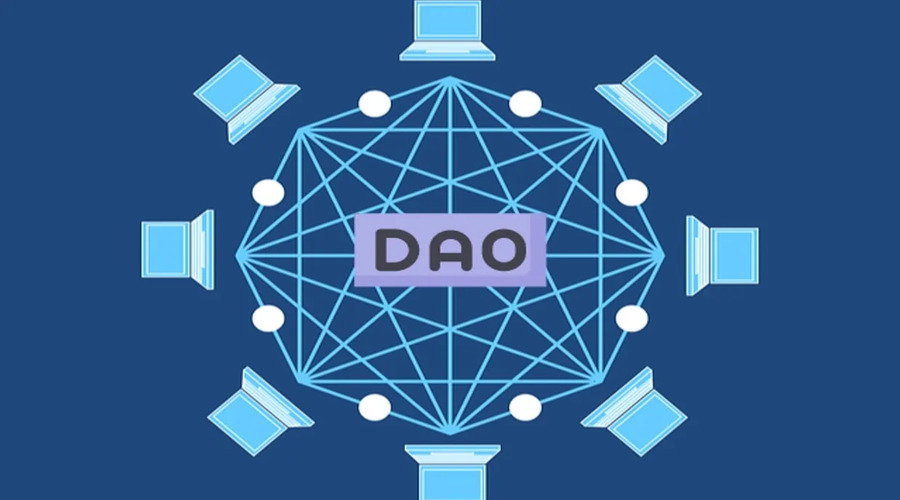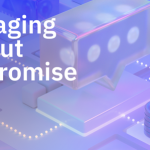
The Role of Decentralized Autonomous Organizations (DAOs) in Blockchain
- Cary
- March 9, 2023
- Blockchain
- Blockchain, DAOs, DAOs in blockchain
- 0 Comments
Decentralized Autonomous Organizations (DAOs) are a type of blockchain-based organization that operates autonomously through code and the consensus of its members. DAOs have emerged as a promising new approach to organizing economic activity and governance, providing new opportunities for collaboration and innovation. In this article, we will explore the role of DAOs in the blockchain ecosystem.
What are DAOs?
DAOs are decentralized organizations that operate on a blockchain network, typically Ethereum. They are governed by a set of rules that are encoded in smart contracts, which are self-executing programs that automatically execute the rules set forth in the contract when certain conditions are met. DAOs are managed and run by their members, who hold tokens that represent ownership in the organization.
DAOs are designed to be autonomous and self-governing, meaning that they operate independently of any central authority or individual. They are built on a consensus-based decision-making model, where all members of the DAO have an equal say in the direction of the organization. This allows DAOs to operate in a trustless and decentralized manner, ensuring that all members have an equal voice in decision-making and that no single entity can control the organization.
Benefits of DAOs
The benefits of DAOs are numerous. One of the key advantages of DAOs is their ability to create decentralized, community-driven networks that are resistant to censorship and control. Because DAOs operate on a blockchain network, they are able to provide a high level of transparency and accountability, making it easier for members to track the actions of the organization.
Another advantage of DAOs is their ability to provide new opportunities for collaboration and innovation. Because DAOs are open and decentralized, they allow for a wide range of participants to join and contribute to the organization. This can lead to the creation of new products and services, as well as the development of new governance models that are more responsive to the needs of the community.
Role of DAOs in Blockchain
DAOs have an important role to play in the blockchain ecosystem. One of the key areas where DAOs are making an impact is in the area of decentralized finance (DeFi). DAOs are being used to create new financial products and services that are more transparent, accessible, and inclusive than traditional financial systems.
DAOs are also being used to create decentralized marketplaces and platforms that allow for the exchange of goods and services without the need for a central intermediary. This has the potential to disrupt traditional marketplaces and create new opportunities for economic activity.
Another area where DAOs are making an impact is in the governance of blockchain networks. DAOs can be used to create new governance models that are more transparent and democratic than traditional governance structures. This can help to increase trust and participation in blockchain networks, as well as ensure that the interests of all stakeholders are represented.
Challenges for DAOs
Despite their potential benefits, DAOs also face a number of challenges. One of the key challenges for DAOs is their ability to scale. As DAOs grow in size and complexity, it can become more difficult to manage the organization in a decentralized and autonomous manner. This can lead to governance issues and conflicts among members.
Another challenge for DAOs is their susceptibility to hacking and other security vulnerabilities. Because DAOs are built on a blockchain network, they are subject to the same security risks as other blockchain-based systems. This requires DAOs to implement strong security measures to protect against attacks and prevent the loss of funds.
DAOs and Decentralized Finance (DeFi)
One of the most significant areas where DAOs are making an impact is in the field of decentralized finance (DeFi). DeFi refers to financial applications that operate on a blockchain network, enabling users to engage in financial transactions without the need for intermediaries like banks. DAOs are playing a crucial role in the development of DeFi by providing a governance structure for decentralized financial protocols.
For example, Uniswap is a decentralized exchange (DEX) that enables users to trade cryptocurrencies without the need for a centralized exchange. Uniswap operates on a DAO structure, with the community of token holders responsible for making decisions about the direction of the protocol. This model allows for greater community involvement and transparency in the development and governance of the exchange.
DAOs and Decentralized Autonomous Marketplaces
Another area where DAOs are playing an important role is in the development of decentralized autonomous marketplaces. These marketplaces allow for the exchange of goods and services without the need for a central intermediary. Instead, the marketplace is governed by a DAO that determines the rules and regulations of the marketplace.
One example of a decentralized autonomous marketplace is OpenBazaar. OpenBazaar is a decentralized marketplace that allows users to buy and sell goods and services using cryptocurrency. The platform is governed by a DAO that is responsible for managing the rules and regulations of the marketplace.
DAOs and Blockchain Governance
DAOs are also playing an important role in the governance of blockchain networks. Blockchain networks require governance structures to make decisions about the development and operation of the network. Traditional governance structures can be centralized and non-transparent, which can lead to conflicts of interest and lack of trust among stakeholders.
DAOs provide an alternative governance model that is more transparent and democratic. Because DAOs operate on a consensus-based decision-making model, all members have an equal say in the direction of the organization. This can help to increase trust and participation in blockchain networks, as well as ensure that the interests of all stakeholders are represented.
DAOs and Sustainability
DAOs have the potential to play an important role in promoting sustainability and social responsibility in the blockchain ecosystem. For example, DAOs can be used to fund and manage sustainability projects that promote renewable energy and reduce carbon emissions.
DAOs can also be used to promote social responsibility by providing a governance structure for projects that have a positive social impact. For example, DAOs can be used to fund and manage projects that promote access to education, healthcare, and other essential services.
Conclusion
DAOs are a promising new approach to organizing economic activity and governance in the blockchain ecosystem. They offer new opportunities for collaboration, innovation, and transparency, while also providing a decentralized and autonomous governance structure. However, as with any new technology, DAOs face challenges that must be addressed in order to fully realize their potential. By overcoming these challenges, DAOs have the potential to transform the way we organize economic activity and governance in the blockchain ecosystem.

